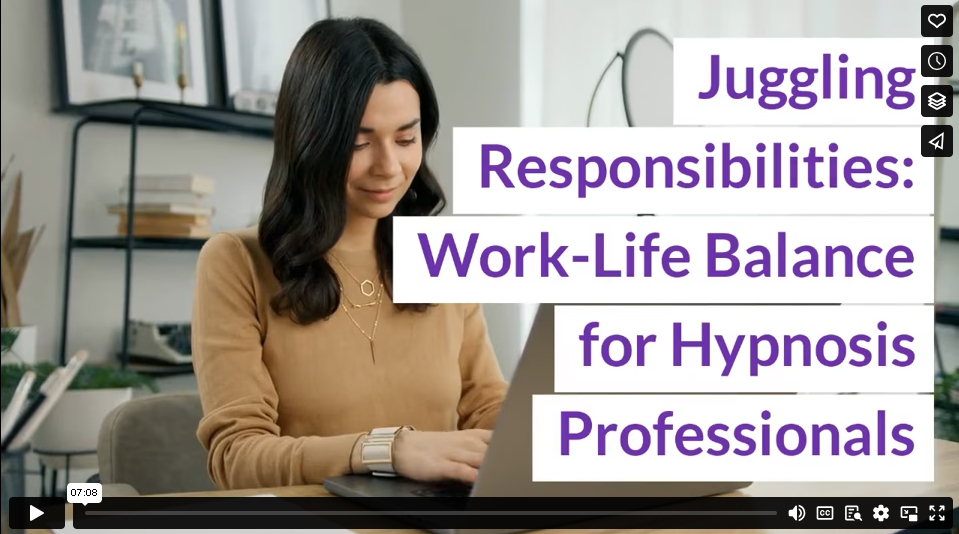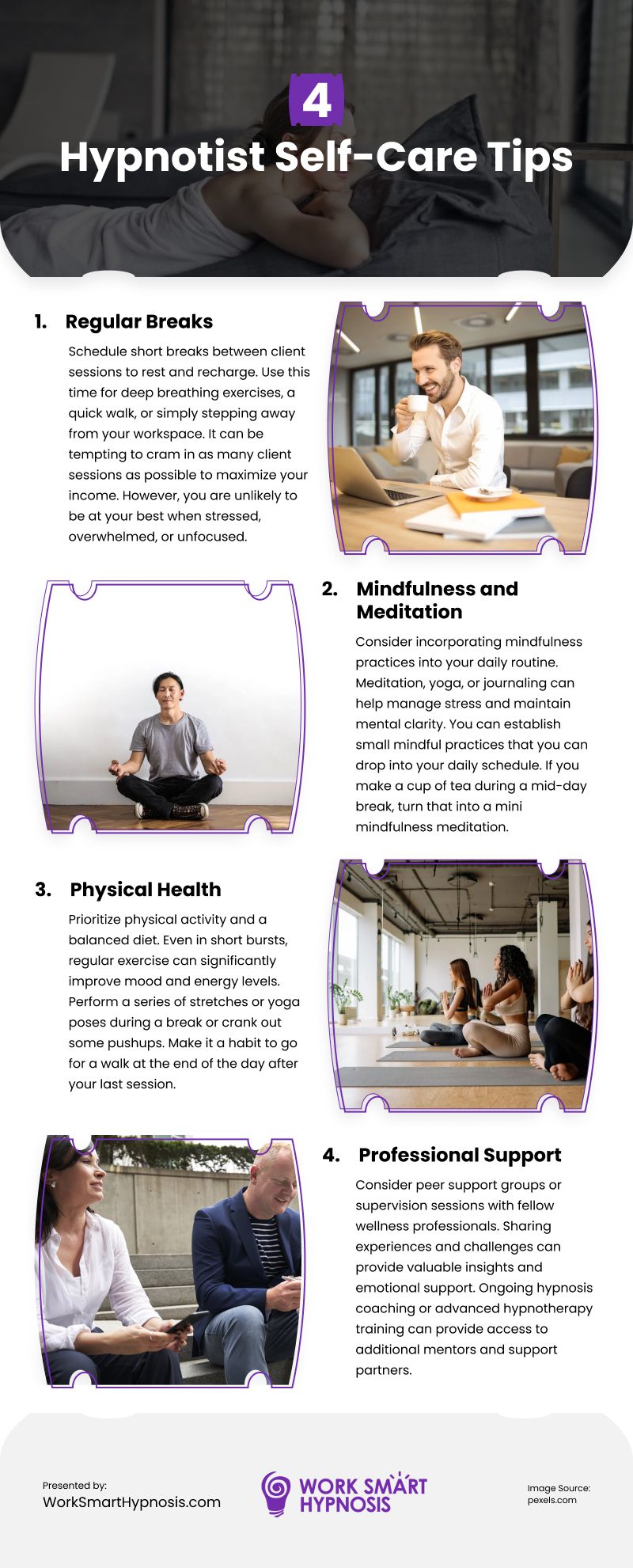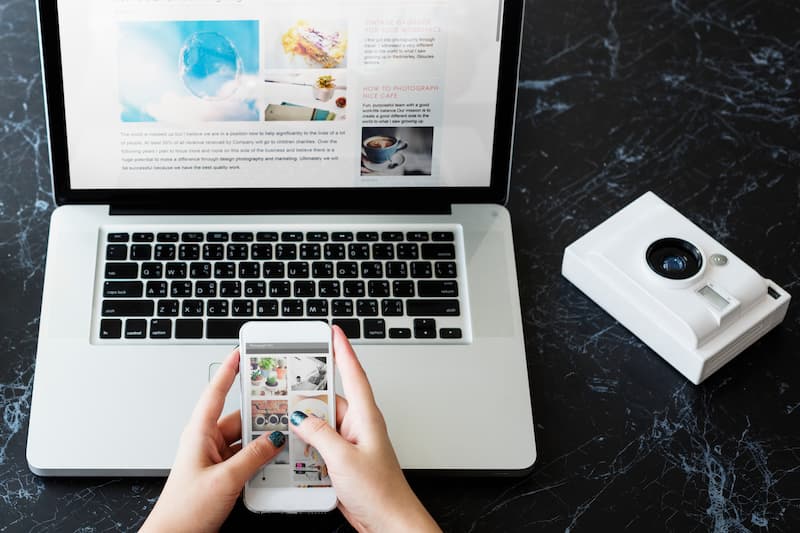As a professional hypnotist, your work is deeply rooted in helping others achieve balance and harmony in their lives. While guiding your clients through their journeys, you may often struggle to maintain that balance in your own life.
Juggling the responsibilities of your work and personal life can be challenging, but with mindful strategies and self-awareness, you can achieve a fulfilling equilibrium. Let’s take a look at practical ways to maintain a healthy work-life balance while running a hypnosis business.
Setting Boundaries
Boundaries are essential to maintaining a healthy work-life balance. As a hypnotist, you may have a flexible schedule. While that’s a benefit of this career path, it can blur the lines between your work and personal time. Here are some strategies to establish and maintain boundaries:
1. Designate Work Hours: Set specific hours for client sessions and administrative tasks. Communicate these hours clearly to your clients and stick to them. This designation helps prevent work from encroaching on personal time.
Extend these work hours beyond client sessions. Carve out specific time to work on administrative tasks, like billing and marketing. Block off this time so that it isn’t available for clients. Setting designated hours to accomplish these necessary tasks prevents them from bleeding into your personal time. Additionally, knowing that Tuesdays from 3:30 to 4:30, you should be working on business responsibilities can help prevent these projects from getting set aside or overlooked.
2. Create a Dedicated Workspace: Designate a specific area for your practice if you work from home. This physical separation can help you mentally transition between work and personal life. When you are at your workspace, you are on the job. When you leave that space, even if that just means stepping away from a desk in your living room, you leave the work behind. This separation mirrors a traditional office job, where the transition from work to home is more straightforward.
3. Limit After-Hours Communication: Establish a policy for responding to client inquiries outside work hours. Consider setting up an automated response system to manage expectations and reduce the pressure to be constantly available. You don’t want to feel like you are always “on.” Give yourself mental space to decompress and turn off work mode.
It’s okay to be occasionally unavailable to your clients. Communicate your hours clearly so that the people you work with know when you are and are not available. If you make it known that you don’t take calls or respond to messages on weekends or after 8:00 pm–or whatever times work best for you–they will know that these are your off-hours.
Prioritizing Self-Care
As a caretaker of others’ well-being, it’s especially important to prioritize your own self-care. Regular self-care practices can enhance your ability to provide quality care to your clients while maintaining your own health and happiness.
1. Regular Breaks: Schedule short breaks between client sessions to rest and recharge. Use this time for deep breathing exercises, a quick walk, or simply stepping away from your workspace.
It can be tempting to cram in as many client sessions as possible to maximize your income. However, you are unlikely to be at your best when stressed, overwhelmed, or unfocused. Additionally, if you burn out, you will need time to recover. It’s better to build small breaks into your day, setting a pace you can comfortably sustain.
2. Mindfulness and Meditation: Consider incorporating mindfulness practices into your daily routine. Meditation, yoga, or journaling can help manage stress and maintain mental clarity.
You can establish small mindful practices that you can drop into your daily schedule. If you make a cup of tea during a mid-day break, turn that into a mini mindfulness meditation. Focus on the smell of the tea, the way the cup feels in your hands, and the taste of the first sip. Find a small routine like this that works for you and integrate it into your day.
3. Physical Health: Prioritize physical activity and a balanced diet. Even in short bursts, regular exercise can significantly improve mood and energy levels. Perform a series of stretches or yoga poses during a break or crank out some pushups. Make it a habit to go for a walk at the end of the day after your last session. Making these things part of your routine makes you more likely to keep up with them.
Proper nutrition is also critical to overall well-being and cognitive function. Stock your office with healthy snacks. You’ll be less likely to grab a bag of potato chips if you have a bag of baby carrots sitting in the fridge.
4. Professional Support: Consider peer support groups or supervision sessions with fellow wellness professionals. Sharing experiences and challenges can provide valuable insights and emotional support. Ongoing coaching in hypnosis or advanced hypnotherapy training can provide access to additional mentors and support partners. Continuing to hone your craft can also make you feel more confident and relaxed in your practice.
Embracing Flexibility
While structure and boundaries are essential, rigidity can create stress. Embracing flexibility can enhance work-life balance. Life is dynamic, and allowing for flexibility can help you adapt to changing circumstances.
1. Adjusting Schedules: Be open to adjusting your schedule when necessary. This adjustment might mean accommodating a client’s urgent need or rescheduling a session to attend a family event. Flexibility can reduce stress and improve overall satisfaction.
Flexibility could also be increasing your work hours for a week before and after a vacation. That would allow you to get the relaxation and time away you need while ensuring you can service all your clients.
We’ve already discussed the importance of boundaries. Make sure that adjustments to your schedule don’t become long-term infringements upon your boundaries.
2. Accepting Imperfection: Recognize that achieving perfect balance is unrealistic. Some days, work will demand more of your time, and other days, personal matters will take precedence. Accepting this ebb and flow can reduce frustration and enhance resilience.
Give yourself grace if 3:30 to 4:30 on Tuesday isn’t enough time for administrative work because you are beginning a new marketing strategy. It’s okay to extend your work time temporarily. If you need to do this frequently, consider adding additional time to your schedule.
Juggling responsibilities as a hypnosis professional requires balancing your work and personal life. You can achieve harmony and fulfillment by setting boundaries, prioritizing self-care, and embracing flexibility.
Balance is not a one-time achievement. It’s an ongoing process of self-awareness and adjustment. Caring for yourself enhances your ability to care for your clients, ultimately leading to a more rewarding professional and personal life.
Video

Infographic
As a professional hypnotist, your focus is on helping others achieve balance and harmony. It’s essential to prioritize your own self-care, as it enhances your ability to care for clients while promoting your health and happiness. Learn more in the infographic.




